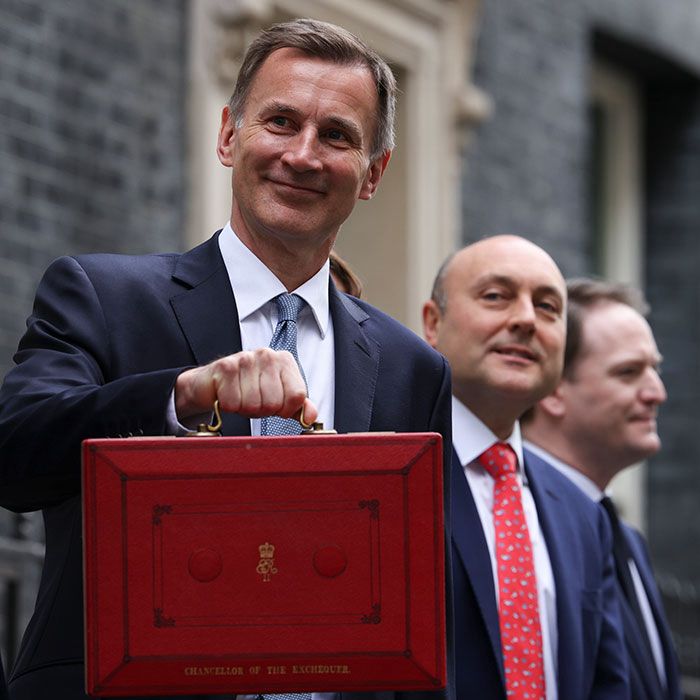On March 6, 2024, the UK’s financial landscape was set on a new course with the announcement of the Spring Budget by the Chancellor of the Exchequer, the Rt Hon Jeremy Hunt MP. This pivotal moment brought forward a slew of reforms aimed at simplifying the tax system, promoting fairness, and ensuring robust public finances. Amid these changes, accounting firms in London emerge as vital navigators for businesses striving to adapt and thrive under the new regulations.
Key Announcements and Their Implications
The Spring Budget 2024 outlined several key tax measures, each with direct implications for individuals and businesses:
Personal Tax Adjustments – A notable reduction in National Insurance contributions for employees and self employed individuals of Class 1 employee NICs from 10% to 8% from 6 April 2024, and a further 2p reduction to the main rate of Class 4 self-employed NICs from 8% to 6% from 6 April 2024. Alongside these cuts, the government announced that it will consult on Class 2 NICs abolition later this year, marks a significant shift. Moreover, the abolition of the remittance basis of taxation for non-UK domiciled individuals from April 6, 2025, transitions to a residence-based regime, affecting tax liabilities and planning.
High Income Child Benefit Charge (HICBC) – the government has announced it will raise the HICBC income threshold from £50,000 to £60,000 from 6 April 2024, and the taper will be extended up to £80,000.
Capital Gains Tax (CGT) – the government has announced to reduce the higher CGT rate for residential property disposals that take place on or after 6 April 2024, from 28% to 24%. The lower rate of 18% will remain unchanged.
New UK Individual Saving Account (ISA) – the government has announced that it intends to introduce a UK ISA with a new £5,000 allowance, in addition to the existing ISA allowance, and has launched a consultation on its design and implementation.
Business Tax Reliefs
New permanent rates of relief for the cultural sector and additional support for independent film highlight the government’s commitment to fostering growth and innovation. The establishment of an expert advisory panel for R&D tax reliefs further underscores this direction.
VAT and Excise Duty Adjustments
With the VAT registration threshold increase and the introduction of new duties, businesses are faced with a complex regulatory environment. VAT Thresholds would increase from £ 85,000 to £90,000 from 1 April 2024, and the level at which a business can apply for de-registration will increase from £83,000 up to £88,000. The government will consult in April 2024 on the VAT implications for the private hire vehicle sector. The specifics, such as the vaping product duty and adjustments to Stamp Duty Land Tax such as First Time Buyers’ Relief and abolition of Multiple Dwellings Relief from 1 June 2024, require careful navigation.
The Indispensable Role of Accounting Firms
In the wake of these announcements, accounting firms in London especially are positioned more crucially than ever. Their expertise is paramount in guiding businesses through the intricacies of the new tax measures, ensuring compliance, and optimising financial strategies.
Navigating Personal and Business Tax Changes
The reduction in NICs and the shift to a residence-based tax regime for non-UK domiciled individuals present both challenges and opportunities. Accounting professionals offer the insight needed to adjust payroll processes and reevaluate tax planning strategies, ensuring businesses and individuals alike can navigate these changes efficiently.
Strategic Advisory on Business Tax Reliefs
With the introduction of new tax reliefs of the Spring Budget 2024, accounting firms play a critical role in identifying eligibility and optimising claims for businesses. Their strategic advisory extends to leveraging the enhanced support for the cultural and innovation sectors, ensuring clients maximise potential benefits.
Compliance and Optimisation in the Face of VAT and Excise Duty Adjustments
The adjustments to VAT and the introduction of new excise duties call for a meticulous approach to compliance and financial planning. Accounting firms in London are adept at providing the necessary guidance to businesses, from navigating the increased VAT registration threshold to strategizing around the new vaping product duty.
Bridging the Tax Gap: Cryptoassets and Beyond
The focus on tightening regulations around cryptoassets, as seen in the consultation on the UK implementation of the OECD Cryptoasset Reporting Framework, highlights the evolving landscape of tax compliance. Accounting firms in London are at the forefront of offering the specialised knowledge required to navigate these new reporting requirements, ensuring businesses stay compliant while capitalising on digital asset opportunities.
Conclusion on the Spring Budget 2024
The Spring Budget 2024 sets a transformative agenda for the UK’s tax system, with far-reaching implications for businesses and individuals. In this dynamic environment, the value of accounting firms in London cannot be overstated. Their expertise and strategic advisory are crucial in navigating the complexities introduced by the new budget measures.
From personal tax adjustments to business tax reliefs and the intricate changes in VAT and excise duties, these firms offer the guidance necessary to ensure compliance, optimise financial strategies, and leverage the opportunities arising from budget reforms. As we move forward, the role of accounting firms in London and in the UK as a whole, will undoubtedly become even more pivotal, acting as key enablers for businesses aiming to thrive in the post-Spring Budget 2024 landscape.

